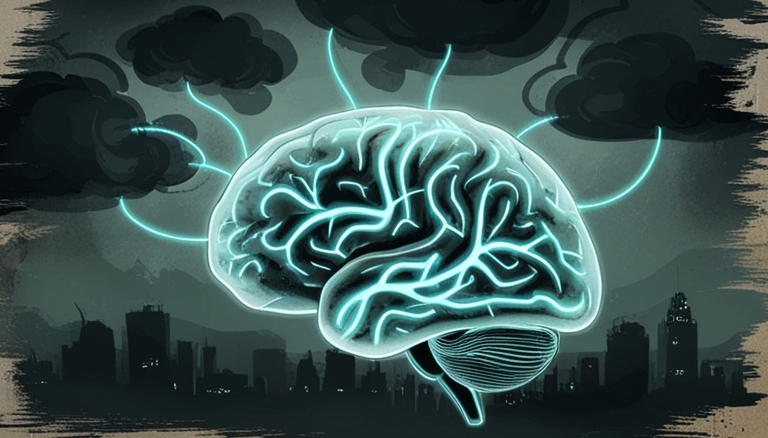Trauma doesn’t just affect your emotions, it physically changes your brain. If you’ve ever wondered why you react the way you do after trauma, it’s not because you’re “broken” or “weak.” Science shows that trauma survivors experience real neurological changes that can alter memory, perception, and even pain tolerance.
But here’s the good news: Your brain can heal. Understanding how trauma rewires your mind is the first step toward reclaiming control.
1. Trauma Can Shrink Your Brain (Literally)
The Disturbing Truth: Chronic stress and trauma actually shrink parts of your brain specifically, the hippocampus (memory center) and prefrontal cortex (decision-making and emotional regulation). This can make it harder to remember things, regulate emotions, and process logic during stress.
The Hope: Your brain has neuroplasticity, meaning it can rebuild and rewire itself. Therapy, mindfulness, and healthy coping strategies can help these areas grow back over time.

2. Your Pain Threshold Gets Rewired (And Not in a Good Way)
The Disturbing Truth: Trauma can make you either hyper-sensitive to pain (hypervigilance) or numb to it (dissociation). Some trauma survivors don’t feel pain as intensely, while others experience pain more frequently—even when there’s no injury.
The Hope: Somatic therapy (which focuses on reconnecting the mind and body) can help recalibrate your nervous system so you react to pain in a healthier way.
3. You Start ‘Time Traveling’ (Flashbacks Aren’t Just Memories)
The Disturbing Truth: Trauma survivors don’t just remember their past they relive it. During a flashback, your brain reacts as if the trauma is happening in real-time your heart rate spikes, stress hormones flood your system, and even pain receptors can activate.
The Hope: Grounding techniques (like holding ice, smelling strong scents, or focusing on textures) can help “snap you back” into the present moment.
4. Your Brain Will Betray You to ‘Protect’ You
The Disturbing Truth: If you’ve ever forgotten entire chunks of your past, felt disconnected from your body, or experienced moments where you didn’t “feel real,” that’s dissociation your brain’s survival mechanism to avoid overwhelming pain.
The Hope: EMDR (Eye Movement Desensitization and Reprocessing) and Internal Family Systems (IFS) therapy can help process buried memories safely, reconnect with lost parts of yourself, and regain a sense of wholeness.
5. It Can Turn You Into an ‘Addict’—But Not the Kind You Think
The Disturbing Truth: Many trauma survivors become addicted to chaos, toxic relationships, or high-stress environments. Why? Because their nervous system is so used to danger that calm and stability feel “wrong.” This is why some people unknowingly repeat trauma cycles in relationships, work, or even daily habits.
The Hope: Recognizing this pattern is the first step. The second? Rewiring your brain for safety—through therapy, self-awareness, and mindful practices that teach your nervous system how to feel secure without chaos.
Trauma Changes Your Brain—But You Can Change It Back
If any of this sounds familiar, know this: You’re not broken. Your brain adapted to survive. But healing is possible.
